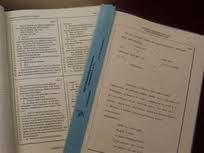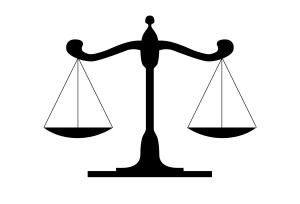 Is it okay for me to get a free copy of a transcript from opposing counsel?
Is it okay for me to get a free copy of a transcript from opposing counsel?
From time to time we hear of an attorney who has asked opposing counsel for a copy of a deposition transcript so that they don’t need to order one from the court reporter. To some, this may seem a simple and practical way of receiving a free transcript. As court reporters, there are some things we would like you to know about our pricing and why that practice undermines our standards in pricing.
The fact is that standard pricing practices for transcripts have always taken into consideration that a legal transcript is something that is usually required by both sides of a lawsuit in order for each side to do their job properly. If attorneys began passing around free copies of transcripts, court reporters would only be partially paid for the work they perform. We would need to change our pricing in order to be fully compensated. We would need to charge the full amount of transcription to the side who is ordering the original. This would almost double the cost of a transcript for the ordering party.
There could be undesirable ramifications to changing our pricing structure. For example, if the cost of an original was high, and the cost of a copy was free, it might reduce the number of witnesses you are willing to depose in a lawsuit and potentially change the way in which you conduct your case.
If there are multiple parties, is it okay to make free copies of transcripts for the other parties?
Again, the fact that there are sometimes multiple parties has also been figured into the pricing structure we use. Yes, sometimes we are able to sell extra copies of a transcript in the case of multiple parties. But there are also many times when only the original is ordered, and no one is ordering the copy. In those cases, we are making considerably less than we should on a transcript and the work that went into producing it. So the extra orders we receive occasionally from multiple parties help make up for those times when only one side orders a transcript.
If parties were to regularly only order one copy and share it, we would be forced to change our pricing structure. It would be necessary for us to charge the ordering attorney more to make up for the copy that the other party didn’t purchase. We prefer not to do that because it wouldn’t be fair to the ordering party to put all the weight on their shoulders.
As court reporters, our job is to be fair and impartial and we take that responsibility seriously. We are very careful how we structure our pricing to ensure that all parties in a lawsuit are treated fairly and equitably.
To learn more about court reporting pricing and costs, download our guide, “How Much Should I Expect to Pay for Court Reporting Services.”
 Recently, there has been an increase in the number of gift-giving or reward programs offered to attorneys and their staff for scheduling depositions with a particular court reporting agency. The gifts clearly are made in order to influence the selection of court reporting agencies when scheduling depositions. There is an ongoing debate among court reporters whether this practice is ethical and whether it begins to erode the industries’ reputation for operating with high integrity.
Recently, there has been an increase in the number of gift-giving or reward programs offered to attorneys and their staff for scheduling depositions with a particular court reporting agency. The gifts clearly are made in order to influence the selection of court reporting agencies when scheduling depositions. There is an ongoing debate among court reporters whether this practice is ethical and whether it begins to erode the industries’ reputation for operating with high integrity. At O’Brien and Bails, your
At O’Brien and Bails, your  Within the last 20 years, a controversial practice has cropped up in the court reporting profession. Some court reporters have begun contracting exclusively with companies and organizations for large amounts of services. Many court reporters are against such contracting for ethical reasons.
Within the last 20 years, a controversial practice has cropped up in the court reporting profession. Some court reporters have begun contracting exclusively with companies and organizations for large amounts of services. Many court reporters are against such contracting for ethical reasons.  Have you ever had questions about the various charges that are included in a court reporting invoice? Or have you received an invoice with extra charges and been unsure what those charges were for?
Have you ever had questions about the various charges that are included in a court reporting invoice? Or have you received an invoice with extra charges and been unsure what those charges were for?